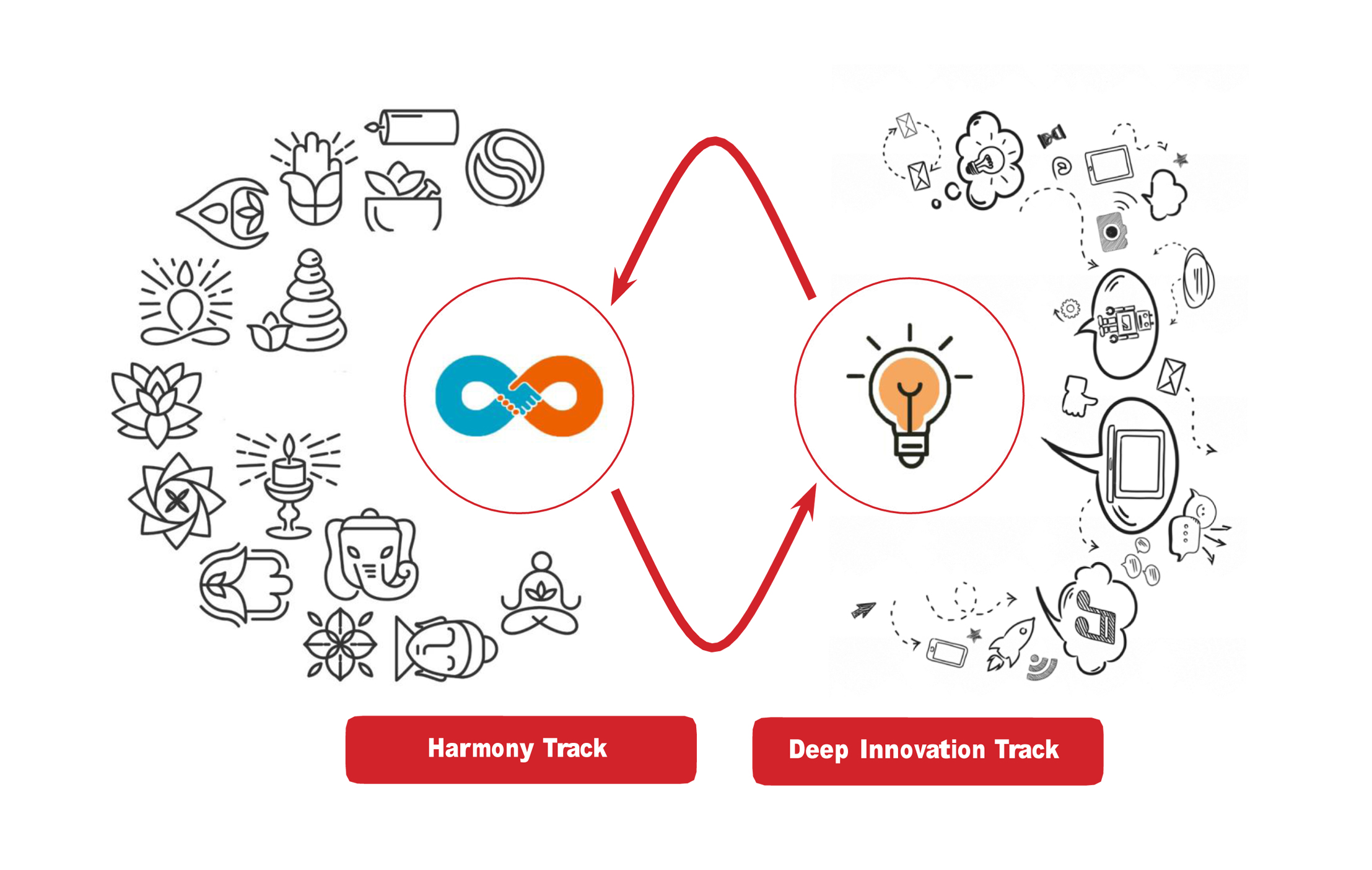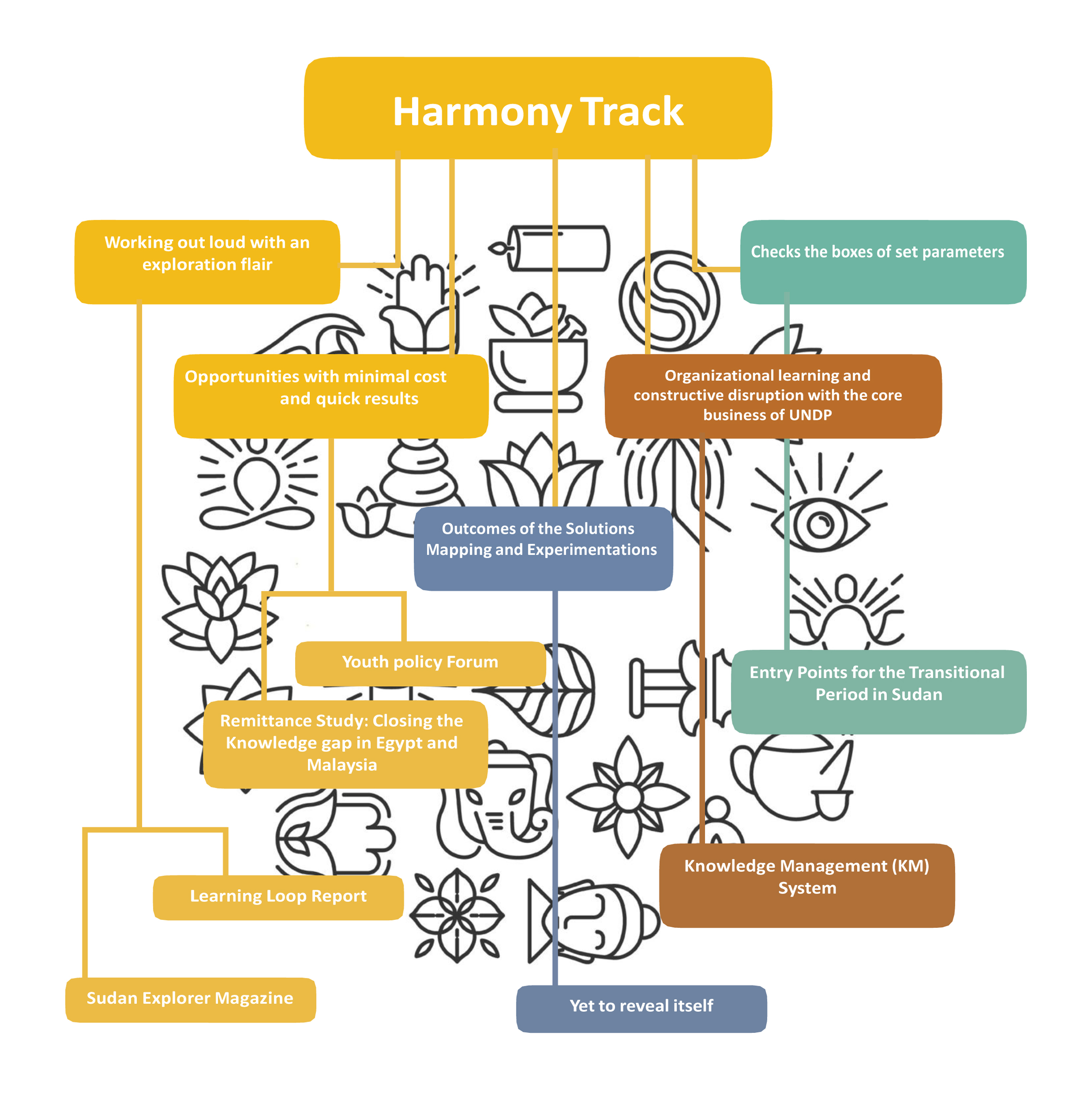Continuous exploration is key to continued relevance of individuals, organizations and even states. In their magnum opus, Relative Absorptive Capacity and Interorganizational Learning, Land and Lubatkin (1998)1 discuss the importance of exploring knowledge for a thriving organization and highlight the relationship between the level of freedom to adopt, explore knowledge on one hand, and the degree to which an organization is fit for purpose on the other.
As I was reading the announcement for the position, my curiosity was piqued. I asked myself; how might I tap into my imagination and my drive to explore to help solve problems my country is facing. Luckily, I was hired for this position, I’ve embraced a mindset of exploration, and for the past 70 days, I’ve embarked on a journey to identify what exploration means for Sudan, the Sudan of today and the Sudan of the future- as well as for UNDP in Sudan and around the world.
What I came up with is that the exploration function of this lab must have two approaches, both aiming at influencing policy-making in Sudan and constructively disrupting businesses as usual within UNDP. Track one, or as I like to call it, the Deep Innovation Track, and track two, the Harmony Track.
The Deep Innovation Track, which is a line of activities designed in a manner entirely driven by curiosity. Here I give myself the go to do the exact opposite of setting deterministic factors. I won’t let the limitations of predictability govern the design of these activities. An example of this is Sudan Horizon Scanner, a collective intelligence platform where we do not know what is going to come out of it, but we know for sure it is going to provide the lab, and the developing world, with insights into whatever topics we are to investigate. And the reason why there is a level of confidence in the previous statement is that the methodology of data collection, as well as the way Sudan Horizon Scanner, will do its analysis. The data collection will bring multiple unconventional data sources together and the analysis will be produced collectively by several knowledge areas of relevance. Thus, the platform might not necessarily produce the right answers all the time, but it would necessarily generate learning. In future blogs, I will elaborate on the Sudan Horizon Scanner and its products in addition to unpacking the concept of deep innovation and what it means for the lab. I will also be writing on each of the activities.
Harmony Track is a track whose activities design and end products are in harmony with the work of the Head of Experimentation and the Head of Solutions Mapping and in harmony with the ecosystem. This requires exploration activities fulfilling at least one of the following criteria:
a. Checks the boxes of set parameters:
Thus, exploration activities from this sub-track are driven by - and can fit in - with predetermined parameters such as a) Sudan’s national plan); b) Country Office Document (CPD); c) Accelerator Lab’s frontier policy challenge.
An exemplar of that is the explorative undergoing activity to determine, “Entry Points for the Transitional Period in Sudan”, through a public perception survey designed to deliver on three main goals. First, sensing and identifying the entry points for Sudan Accelerator Lab in addressing its frontier policy challenge during the Transitional Period of Sudan. Second, to also sense if there is an alignment between decision-makers in setting priorities towards citizen priorities. Third, to create a community of collective intelligence network for the lab who can later be continuous data counterparts, champions of change and data empowerment in their respective communities.
b. Organizational learning and constructive disruption within the core business of UNDP
As part of the explorers’ role, we are mandated to generate learning and facilitate change - according to that learning- within the UNDP system. That inspired my thinking to explore establishing an internal knowledge management (KM) system to facilitate initiatives of relevance, guarantee smooth processes, accomplish planned targets, and embed systems that sustain and enhance the storage, assessment, sharing, refinement, and creation of knowledge. Having such a system in place, we aim at facilitating the internal monitoring practice, ensuring the fluidity of knowledge between the lab heads, the labs' network, partners and the country office.
Currently, with the support of UNDP Sudan learning manager, Ms. Manal Elbashir, and a knowledge management architect, we are co-designing the Accelerator Lab Sudan internal Knowledge Management system and exploring the possibility of extending relevant learnings to the country office, especially the programs teams and field offices across Sudan. The results of the knowledge audit will be used by the Accelerator Lab to support the country office to levitate performance.
c. Outcomes of the Solutions Mapping and Experimentation
The data and findings of experimentation and solution mapping serve as a solid insight into what to explore further and what issues are emerging. These data can contribute to regular sensemaking and market intelligence collection. An example that I intend to have is a line of mapped solutions and associated captured data in order to transfer it to information on emerging issues once they are identified. The way this is going to be performed is by requesting solutions with certain criteria from the solutions head to filter from their depository and use them to inform sensemaking around the issues. The criteria, however, are not set, rather adjustable to the needs of exploration activities and the data flow from the two Heads can inform the sensing or the investigation.
d. Working Out Loud with an exploration flair
Working out loud is an intrinsic part of the work of the lab and my mission to attract partners to the lab. For that, I decided to create a monthly magazine, Sudan Explorer. The magazine will be distributed in cultural centers and at local gathering areas across Sudan since print media is popular among Sudanese. More so, I am also gathering data on the work we are doing as a lab to coordinate efforts on producing a ‘Learning Loop Report’ at the end of
each learning loop. The Learning Loop Report will document lessons learned, and the stories and experiences lived in each learning loop. The report will have two versions, a print one in which we will be exploring ways to make the prints playful and fun. And the second version, which will have the same content but with enabling features and interactive media. The exploration flair in these products is to have a gamified approach to the prints as well as the online version.
Now that the exploration ground has been set, I look forward to seeing the outcomes of the harmony track and hoping for the surprises from the deep innovation track. Especially that both tracks will use historical analysis “the then” to root issues, documenting and investigating current issues “the now” to generate learning around the status quo and spotting entry points of maximum impact, and finally sensing around emerging issues “the uncharted” which will inform policymaking and the ways forward in closing relevancy gaps.
Graphic design by Muhammed Aljeally

 Locations
Locations



